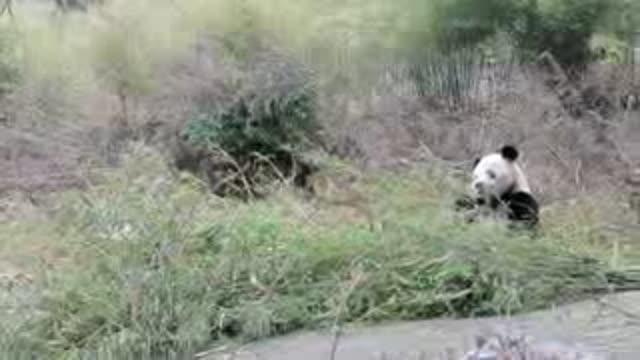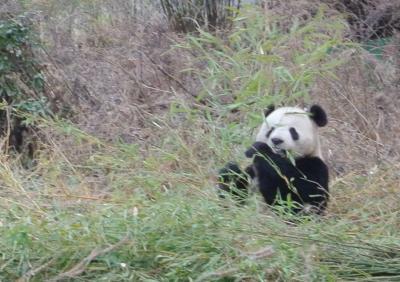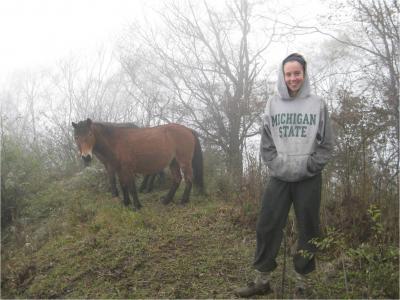Vanessa Hull, a doctoral student in MSU's Center for Systems Integration and Sustainability (CSIS), has been living off and on for seven years in the Wolong Nature Reserve, most recently tracking pandas she's equipped with GPS collars. She has been working to better understand how these elusive and isolated animals move about and use natural resources.
Over the years, she started noticing it wasn't just pandas chowing on bamboo.
"It didn't take particular panda expertise to know that something was amiss when we'd come upon horse-affected bamboo patches. They were in the middle of nowhere and it looked like someone had been in there with a lawn mower," Hull said.
Alarmed by the growing devastation, she learned that some of Wolong's farmers, who traditionally hadn't kept horses, had been talking to friends outside of the reserve who had been cashing in by raising them. A horse there, Hull said, is kind of a bank account. Horses were barred from designated grazing areas because they competed with cattle, so farmers would let them graze unattended in the forests. When funds were needed, they would track the animals down and sell them.
It was an idea whose popularity skyrocketed. In 1998, only 25 horses lived in Wolong. By 2008, 350 horses lived there in 20 to 30 herds.

A panda in the Wolong Nature Reserve munches on bamboo -- which comprises 99 percent of the endangered species' diet in the wild.
(Photo Credit: Sue Nichols, Michigan State University Center for Systems Integration and Sustainability)
To understand the scope of the problem, Hull and her colleagues put the same type of GPS collars they were using to track pandas on one horse in each of the four herds they studied. Then over a year they compared their activity with that of three collared adult pandas in some of the same areas and combined it with habitat data.
They discovered that horses are indeed big on bamboo – and also are drawn to the same sunny, gently sloped spots as pandas. Pandas and horses eat about the same amount of bamboo, but a herd of more than 20 horses made for a feeding frenzy, decimating areas the reserve was established to protect.
This horse problem has been resolved. The researchers presented their findings to Wolong's managers, who have since banned horses from the reserve. But Hull and Liu note that this work has shed light on how competitive livestock can be in sensitive habitat – an issue that is repeated across the globe.
"Livestock affect most of the world's biodiversity hotspots," Liu said. "They make up 20 percent of all of the earth's land mammals and therefore monopolize key resources needed to maintain the earth's fragile ecosystems."

A panda in the Panda Center of Wolong Nature Reserve takes a bamboo break.
(Photo Credit: Sue Nichols, Michigan State University Center for Systems Integration and Sustainability)

Michigan State University Ph.D. candidate Vanessa Hull with some of the horses that once roamed China's Wolong Nature Reserve.
(Photo Credit: Center for Systems Integration and Sustainability, Michigan State University)
Source: Michigan State University